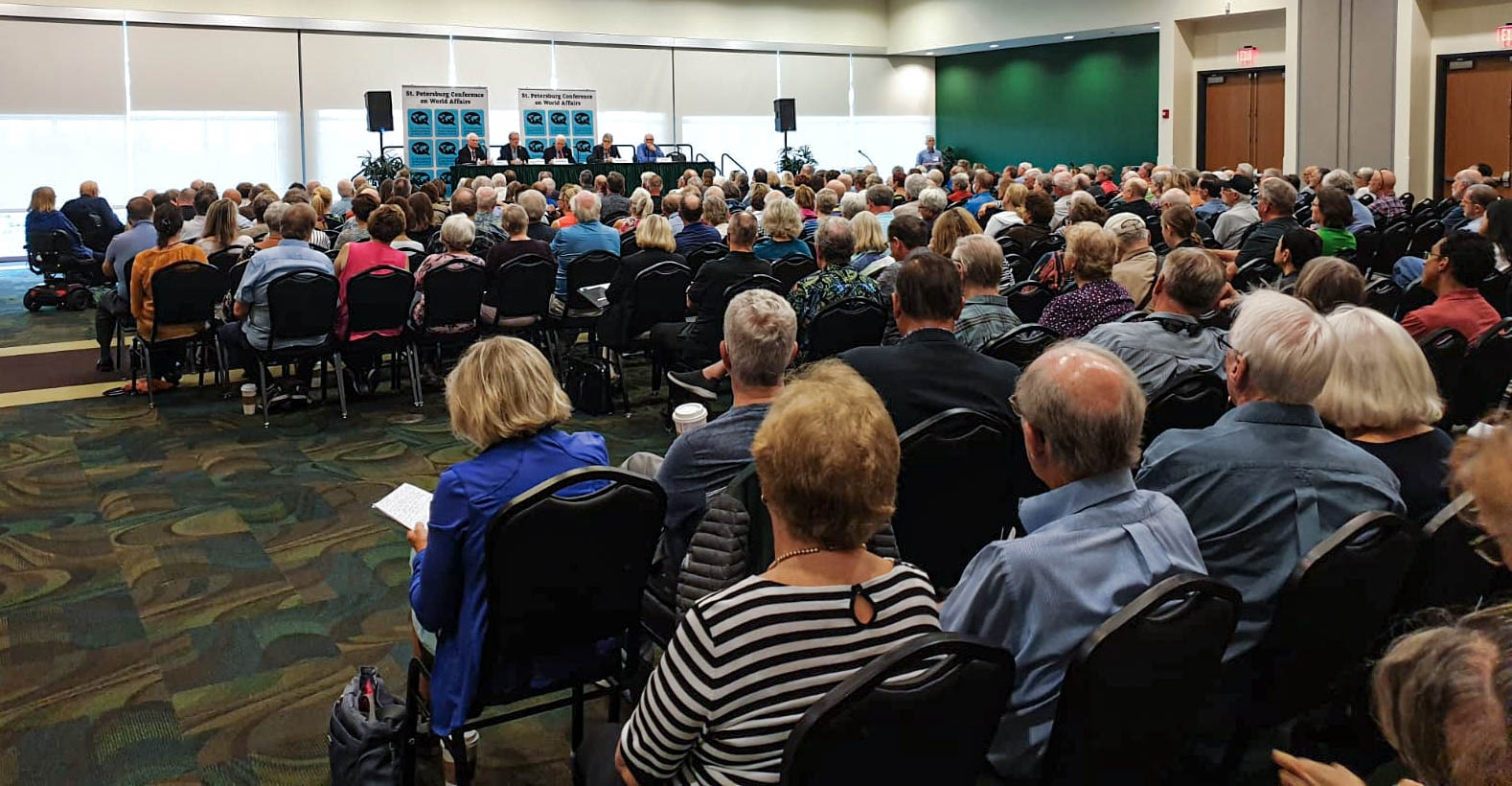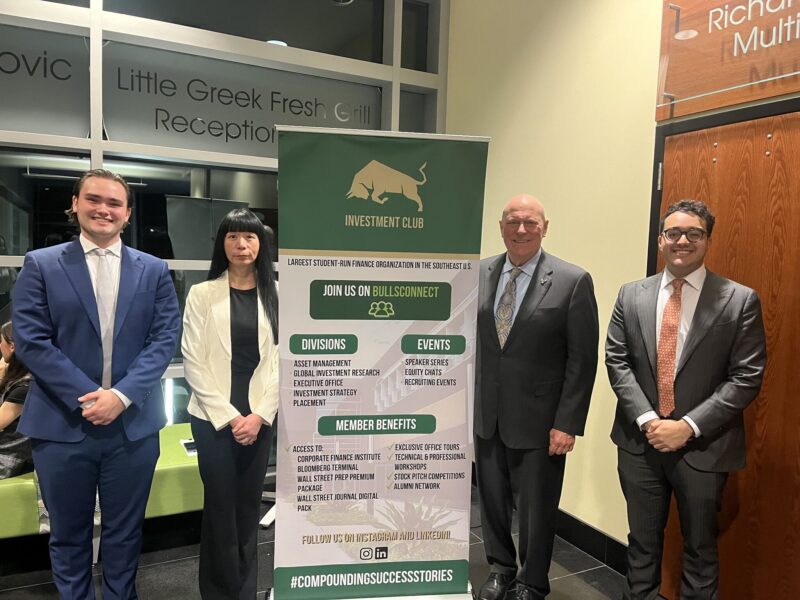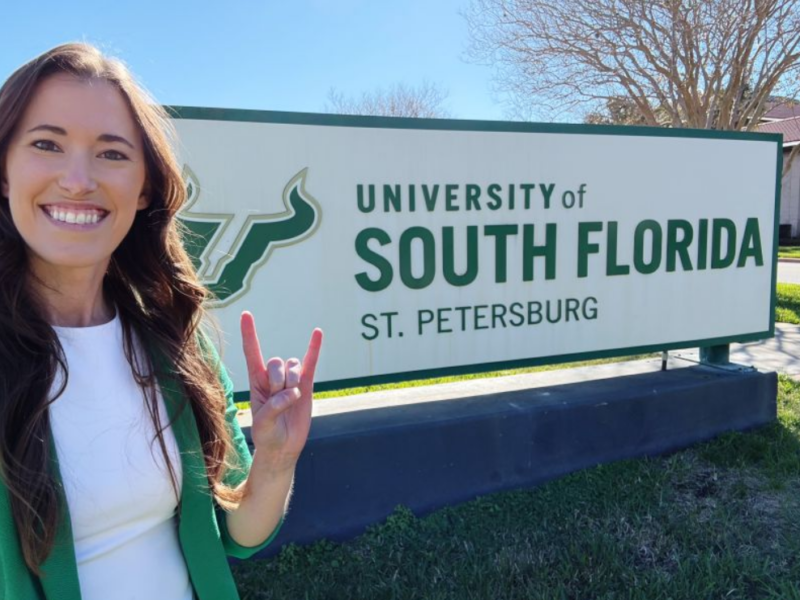Pictured above: Panelists speak about jazz music at the 8th annual St. Petersburg Conference on World affairs on campus last week.
Courtesy of Denis Thuin
By Julia Gennocro
Although jazz music was born in the heart of New Orleans, its international influence has reached all genres — upholding the idea that music is a universal language.
From Brazilian samba jazz and Afro-Cuban jazz to Swedish yodeling jazz, each culture has added its own flare to this highly influential style of music.
A panel of speakers including Alexander Harris, Daniela Soledade, Simon Lasky and Laura Klein came together on Feb. 20 to discuss the topic “Jazz: Born in the U.S., Grew Up Everywhere” at the eighth annual St. Petersburg Conference on World Affairs.
The auditorium in USF St. Petersburg’s Kate Tiedmann College of Business was packed with nearly 100 musicians, community members and music enthusiasts for the discussion.
Klein, a jazz pianist and composer, began the discussion by reflecting on her time at Berklee College of Music in Boston. She stated that almost no women attended the school.
Throughout the years, women’s attendance to music schools increased, and women across the world have continued to bring their own culture to jazz.
One woman from Klein’s list of notable women in jazz was Eliane Elias, a Brazilian known for playing the jazz music of the three Americas.
“She seamlessly switches from Latin music to swing,” Klein said.
Vocalist and guitarist Soledade grew up in a family of musicians with a direct line to the origin of bossa nova, a style of music that combines Brazilian samba with American jazz.
“Since I grew up in the environment, I did not realize where jazz really came from,” Soledade said. “It is very special to me.”
She began to sing “The Girl from Ipanema,” a traditional Brazilian bossa nova song written by Antônio Carlos Jobim and Vinicius de Moraes in 1962. The discussion’s moderator and guitarist Nate Najar accompanied her.
The audience tapped their toes, swayed their heads and closed their eyes to the music.
At the song’s end, Soledade said the song is “so good and so timeless.”
Jazz has also made an impact on the music of different artists and genres right here in the United States.
Harris, musician and founder of the Arts Conservatory for Teens, stressed the ability of jazz music to influence all genres, including pop, hip-hop and rhythm and blues.
Jazz influences can be found in pop music, which infuses many styles, and hip-hop artists often use jazz samples in their music.
“It is very present and very important,” said Harris. “It has the innate ability to tell stories and express what is going on.”
Lasky, a London-born pianist and composer, emphasized the important cultural contribution Americans made in the creation of jazz.
“It only could have come out of the melting pot of America,” Lasky said. “It is one of mankind’s greatest achievements.”
Although music has the ability to impact people globally, it also has the ability to impact people on a much more local scale.
Audience member and St. Petersburg local Paul Schneider is a former physicist with a love for music. An avid concertgoer, he has even seen Najar play in concert several times.
“I wish my mother forced me to learn guitar as a child,” he said. “But it gives you a great appreciation for what other people can do.”
Najar and Soledade will perform alongside other musicians at the Jazz Samba Celebration at the Palladium Theater, 253 Fifth Ave. N, at 8 p.m. on March 20.



